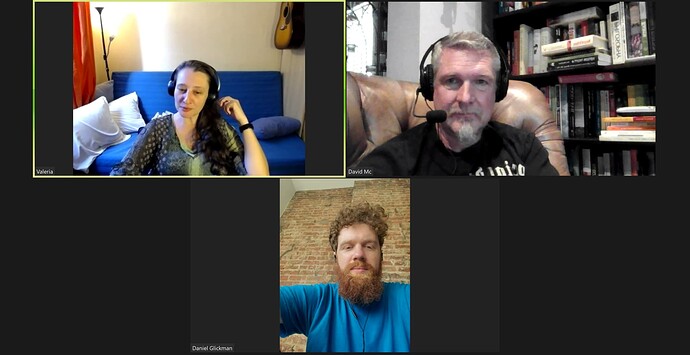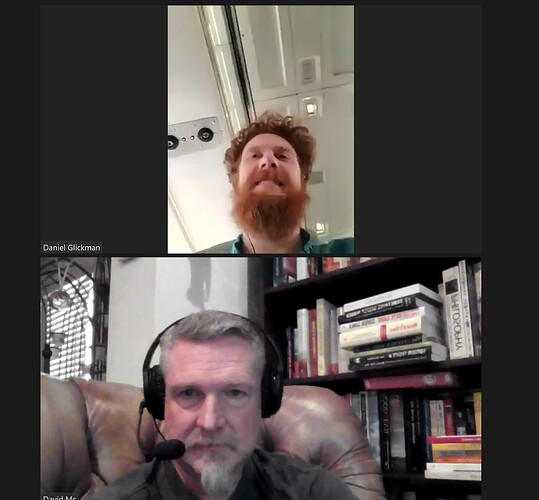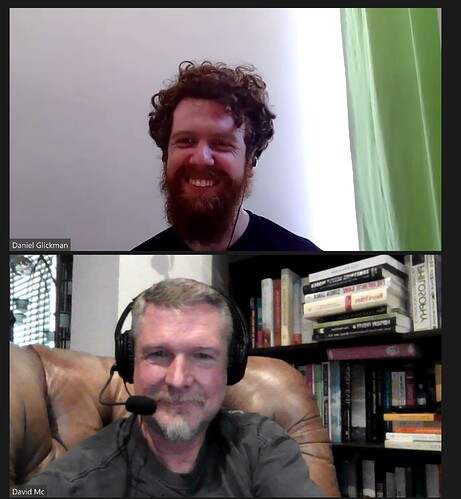2022.09.10 S02E38
to
We were delighted to welcome back @Valeria after a lengthy hiatus. ![]() After chatting a bit about Vervaeke’s appearance on the Lex Fridman podcast we discussed Chapman’s strange obsession with aardvarks and tarantulas.
After chatting a bit about Vervaeke’s appearance on the Lex Fridman podcast we discussed Chapman’s strange obsession with aardvarks and tarantulas.
I confessed that when reading the case for selflessness I heard it in the void of Sam Harris since he brings it up so often on his podcast. I think I even mentioned that I started tuning him out when he does that, and yet not one hour later I was listening again to Sam going on at length to explain his position in his latest episode.
To be fair, this time he clarified that there are many definitions of self that he does concede exist. It is just the one we associate with the subject of experience that he thinks is an illusion. That refinement may deflect my argument somewhat, that the existence of other minds implies the existence of self if the self is just one mind’s model of itself.
Valeria mentioned that watching a lot of Chinese dramas gives her the sense that that culture has quite a different sense of self than Western cultures, much more collective. For example, the notion of collective guilt is taken for granted, and it makes sense for one individual to take the punishment for the group even if they were not directly involved in any transgression. That notion seems not only counter-intuitive to my sensibilities but borderline appalling. As an aside, Valeria mentioned that a common trope in Chinese dramas was for one person to give another person their eyes, which led to an interesting tangent on tropes and superpowers.
Even though the page “A billion tiny spooks” is marked as a stub, Daniel and I found plenty of material to disagree with.
One example, Chapman’s characterization of cognitivism:
To acknowledge and include cognitivism—the doctrine that people have beliefs, desires, and intentions (not merely dispositions and behaviors).
In my view, beliefs and desires are models of dispositions and behaviors. It isn’t really a choice between the two. I have to admit I was very influenced by Minsky. I think I read Society of Mind when it was new in the 80s.
This led to an interesting tangent on IFS
Valeria finds it quite useful, but agrees that the parts are created (not discovered) by the practice. I think she agreed with Daniel that it can be risky to fixate parts. I drew a comparison to the strange new subculture on Tiktok around DID
To bring things back to the beginning of the meeting, I mentioned that I found Vervaeke’s description of wisdom very reminiscent of Chapman as a kind of meta-rationality or a way of applying the right kind of rationality to a particular situation. The video link above is queued to the beginning of that section.













